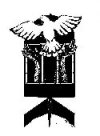
The first U.S. fatality of the war against Yugoslavia has been generally ignored - on the mainland, anyway. David Sanes, a civilian employee of the Navy working as a security guard at the bombing range on Vieques, Puerto Rico, was killed on the evening of April 19 when two bombs missed their target and destroyed his observation tower post. Several others were injured by the “friendly fire” unleashed from the FA-18 jet, presumably - like 80% of such recent bombing practice - on a practice run for missions against Yugoslavia
But in Puerto Rico, Sanes’ killing was only the latest bellows blast to a half century of sometimes smoldering, sometimes blazing resistance on the small island municipality, two-thirds of which was taken by the Navy in 1941 and has since been bombed back to the Precambrian age.
Bombing at the range was suspended following the accident, and has yet to resume. In honor of the slain man, the Viequenses rechristened the high point at the eastern end of the island, Monte David. Nearby, university students and other young people, shuttled and supplied by sympathetic local fishing families, began a round-the-clock vigil two days later at a prominent tank target near the shore. The coordinated act of civil disobedience met no immediate challenge. Over the next month two other camps were established along the bombing range coast. Local unions hauled wood and built a chapel on the range, where an ecumenical mass is now held each Sunday.
One man, Pablo Connelly, was cited for trespass after camping out elsewhere on the bombing range. He was released pending arraignment in federal court.
The occupation of the bombing range on Vieques came on the heels of the latest protest in Puerto Rico last March, over shipments of nuclear waste from France to Japan, via the Panama Canal and a brush with the island territory. For three days, environmental activist Alberto “Pito” de Jes’s camped in the scaffolding of a San Juan building where he’d hung protest banners. Building managers, conscious of growing public support for the protest and the cause, declined to ask police to arrest him.
(In February, 1998, during protests on the main island against NASA’s Coqui Two series of missile-launched atmospheric experiments, Amigos del Mar (Friends of the Ocean) engaged in civil disobedience by rowing into the launch safety exclusion zone. Some launches had to be postponed. Pito was arrested at gunpoint the day after his kayak was capsized by turbulence from a police helicopter, and he had to swim over a mile back home.)
Then on June 1, the Navy admitted to firing depleted uranium (DU) bullets at Vieques, but only once, by accident last February. (Testing DU on the open range is prohibited as too hazardous.) Opponents point to a long list of environmental contaminants left by almost 60 years of bombardment, and suspect that depleted uranium has been used long before last February.
How long the camps will remain unchallenged is unknown. While they lack a vote in Congress and cannot vote for President, the full spectrum of political voices in Puerto Rico are nearly unanimous in calling for the end to Navy target practice on Vieques. A few days ago the Pentagon appointed a panel to recommend whether live fire exercises should continue on Vieques, shortly after the Navy announced its intention to resume using the Vieques target range on June 21.
For more information contact the Committee for the Rescue and Development of Vieques (Comité Pro Rescate y Desarrollo de Vieques-CPRDV), P.O. Box 1424, Vieques, PR 00765, (787)741-8651, email: bieke@tropicweb.net and the Caribbean Project for Justice and Peace, P.O. Box 13241, San Juan, PR 00908-3241, (787)754-7343.
